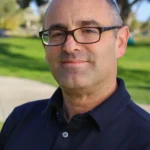
Kamen works as a lifestyle management consultant who explores the art and science of happiness as a speaker, author, and positive psychology expert. Through her globally syndicated podcast, books, media appearances, and documentary film, Lisa has impacted millions of people around the world.
LISA CYPERS KAMEN
meet your host
leave a review
The Virtues of Love and Morality
Original Air Date Wednesday, November 09, 2022
What navigates your internal moral compass? Do you subscribe to a religion or belief in supernatural power to guide you? Or do you allow innate love, compassion, and empathy to steer you toward a better earthly experience for all?
To examine the moral weight of religious obedience, Harvesting Happiness Podcast Host Lisa Cypers Kamen speaks with two professors about their books that address the virtues of love and morality.
Prolific author Dr. Stephen G. Post discusses the virtue of love and unpacks the Eight Pathways of Positive Achievement and Goodness from his book, Give and Live Better.
Executive Director of the Humanist Global Charity, Phil Zuckerman explains the virtue of morality and the research behind his book, What it Means to be Moral: Why Religion is Not Necessary for Living an Ethical Life.
Tune in:
Meet Our Guests:

Stephen Post is a researcher, public speaker, professor, and best-selling author who has taught at the University of Chicago Medical School, Fordham University-Marymount, Case Western Reserve University School of Medicine, and Stony Brook University School of Medicine. Known for his research and public speaking on how giving can enhance the health and happiness of the giver, how empathy and compassionate care contribute to patient outcomes, and ethical issues surrounding the care of dementia patients.
Book: Give and Live Better: Eight Pathways to the Positive Achievement of Goodness
Dr. Stephen Post — The Virtue of Love:
- Our ability to love is based on the compassion we have for others. {2:09}
- Medical love isn’t something we think about but it exists in the medical community. {5:10}
- Dr. Post explains why he created The Institute for Research on Unlimited Love and wrote a book for The Templeton Foundation. {6:37}
- Dr. Post describes his book, Dignity for Deeply Forgetful People: How Caregivers Can Meet the Challenges of Alzheimer’s Disease. {11:46}
- The Eight Pathways of Positive Achievement and Goodness. {14:36}
- Spirituality fills in the gaps of human love. {23:29}
Follow Dr. Stephen Post:

Phil Zuckerman is a Professor of Sociology and Secular Studies at Pitzer College. The author of many books on secularism, he is an Editor at OnlySky and the Executive Director of Humanist Global Charity.
Book: What it Means to be Moral: Why Religion is Not Necessary for Living an Ethical Life
Phil Zuckerman Ph.D. — The Virtue of Morality:
- Dr. Zuckerman describes why he believes non-religious people tend to be more moral than their religious counterparts. {28:21}
- The more secular people are the most supportive when it comes to those in need in war-torn areas. {31:26}
- Dr. Zuckerman explains the role of fear in religion. {35:53}
- Ways the average person can cultivate morality beyond their immediate clan. {37:26}
- The role of critical thinking in the context of empathy, compassion, and morality. {44:20}
- Religious fanaticism breeds successfully in poverty and inequality. {48:50}
- A Humanist community is religious-like but it doesn’t rely on a supernatural belief to solve problems. {51:26}
Follow Phil Zuckerman Ph.D.:
Shareables:
Grab More Joy Below:
Are We Happy Yet? Eight Keys to Unlocking a Joyful Life — A boot camp manual for greater emotional fitness. Happiness waits for no one and sometimes we all need support. What is getting in the way of your happiness right now?
H–Factor: Where is Your Heart? — Lisa’s documentary film explores the journey of human happiness. Emotions are contagious and happiness is a universally desired state. We tend to forget we all have the freedom to be happy or the liberty to be miserable each day.
Continue Your Journey:
Related Episodes:
WANT MORE?
Nothing gives happiness like a free gift...
Sign-up, stay connected, be gifted access to a free meditation video, and receive our monthly Happiness Headlines eZine.
No spam, we promise. We don’t share your information. Get updates on special offerings, events and optimal lifestyle management tips.
Nothing gives happiness like a free gift...
Sign-up, stay connected, be gifted access to a free meditation video, and receive our monthly Happiness Headlines eZine.
No spam, we promise. We don’t share your information. Get updates on special offerings, events, and optimal lifestyle management tips.
Resources
Explore
CONTACT
ABOUT
EPISODES
SHOP
Visit Harvesting Happiness
PRIVACY POLICY
Our communications do not constitute mental health treatment nor is it indicative of a private therapeutic relationship.
Individuals seeking help for trauma related issues or other psychological concerns should seek out a mental health professional.
© 2010-2025 Harvesting Happiness Talk Radio
Website Design by Nadia Mousa